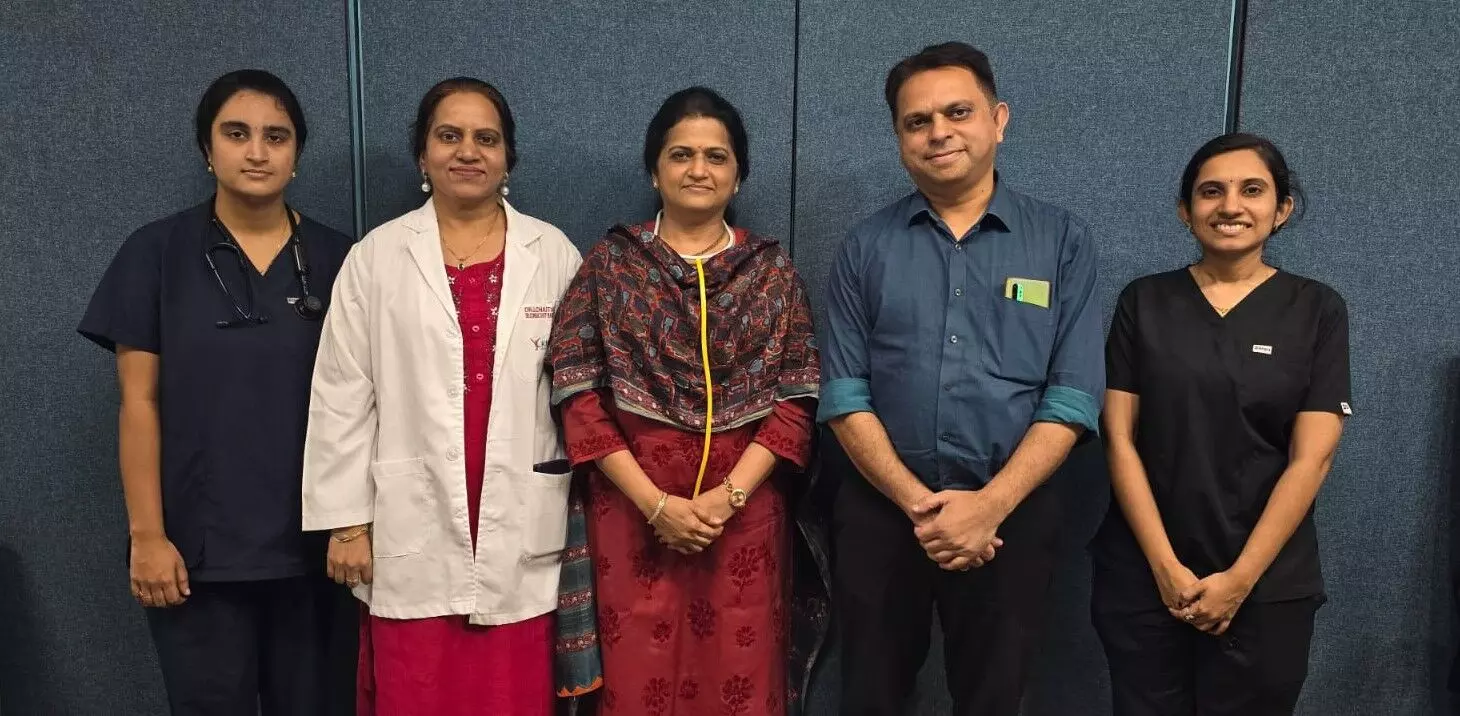KIMS hospitals conducts study on TB detection using AI
This study reinforces the emerging role of AI in medical diagnostics
By Newsmeter Network
Left to Right: Dr.Madhuri, Pulmonologist, Dr. Chaitanya, Radiologist, Dr. Latha Sharma, Sr. Pulmonologist, Dr. Sambit Sahu, Medical Director, Dr. Krishna Priya, Pulmonologist
Hyderabad: KIMS Hospital has completed its most extensive study to date on pulmonary tuberculosis (TB) detection using artificial intelligence (AI).
The retrospective study analyzed 16,675 chest X-rays (CXRs) of adult patients with the help of an advanced AI tool, qXR, without direct input from clinicians. The research aimed to evaluate both the diagnostic accuracy of AI and its concordance with expert radiologist interpretations.
The AI system demonstrated a high sensitivity of 88.7%, indicating its strong ability to correctly identify TB-positive cases. The Negative Predictive Value (NPV) stood at an impressive 97%, suggesting a high degree of reliability in ruling out non-TB cases. The tool’s specificity was 69.1%, which, though moderate, remains within acceptable limits for TB screening and meets the World Health Organization (WHO) guidelines.
A key highlight of the study was the high level of agreement between the AI-generated results and those of expert radiologists. This significant alignment emphasizes AI's potential to enhance both the accuracy and efficiency of TB diagnosis—especially critical in the global fight against TB, where timely detection remains a major challenge.
Dr. Latha Sarma, Head of Department and Senior Consultant Pulmonologist at KIMS Hospitals, commented, “AI’s accuracy in detecting TB marks a transformative shift in diagnostics, especially in areas with limited access to radiology experts.”
Dr. Chaithanya Isamalla, Senior Consultant Radiologist at KIMS, added, “AI complements radiological expertise. It offers a dependable tool for initial screenings, enabling specialists to dedicate more time to complex diagnostic cases.”
This study reinforces the emerging role of AI in medical diagnostics. With tools like qXR meeting global standards for TB screening, their integration into routine healthcare could lead to earlier detection and improved patient outcomes.
As AI technology continues to advance, its contribution to combating infectious diseases like TB becomes increasingly vital, promising a more innovative and efficient future in healthcare.